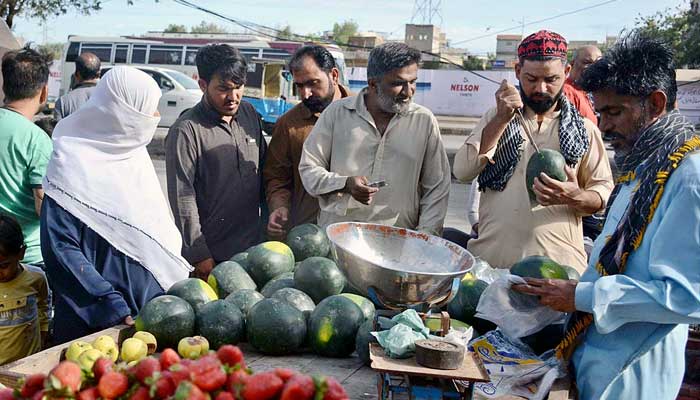PESHAWAR: With the commencement of Ramadan, food prices have also begun to soar without any intervention from the relevant authorities.
It was discovered that the cost of food has been rising steadily throughout the holy month during a visit to markets in Khyber Pakhtunkhwa’s (KP) capital city to check and compare edible costs with those set by the district administration.
According to a vendor, the cost of live chicken has climbed to Rs350 per kg and the cost of rice has increased by Rs70 per kg to Rs335 per kg.
Additionally, he claimed that the price of split chickpeas (chana dal) jumped from Rs220 to Rs260 per kg while the cost of beans climbed by Rs60 per kg, from Rs281 to Rs339 per kg.
When I visited, a merchant informed me that the cost of spices had gone from Rs150 to Rs200 per kilogramme.
He disclosed that people can no longer afford other fruits and vegetables, that the price of spices has gone to Rs600 per kg, and that the cost of oil and ghee has jumped by Rs62 per kg in the city. Garlic is available for Rs360 per kg, whilst ginseng costs Rs620 per kg. In contrast, the cost of a kilogramme of peas is Rs. 200, a kg of arvi is Rs. 180, a kg of zucchini is Rs. 170, a kg of green capsicum is Rs. 150, and a kg of tomato is Rs. 120.
Fruits are now more expensive than they used to be. Iranian apples cost Rs340 per kg, Kohati guavas cost Rs350, and strawberries cost Rs280 per kg. Oranges cost Rs400 per dozen, pomegranates cost Rs400, and bananas cost Rs300 per dozen. The cost of a dozen sweet oranges is Rs440.
The price increase was also felt in the meat sector. Before Ramadan, the price of beef increased from Rs700 to Rs800 per kg, while the price of mutton increased from Rs1,400 to Rs1,600 before soaring to Rs1,800 per kg.
An employee at a local market’s butcher countered, “The rates set by the district administration do not suit us.”

